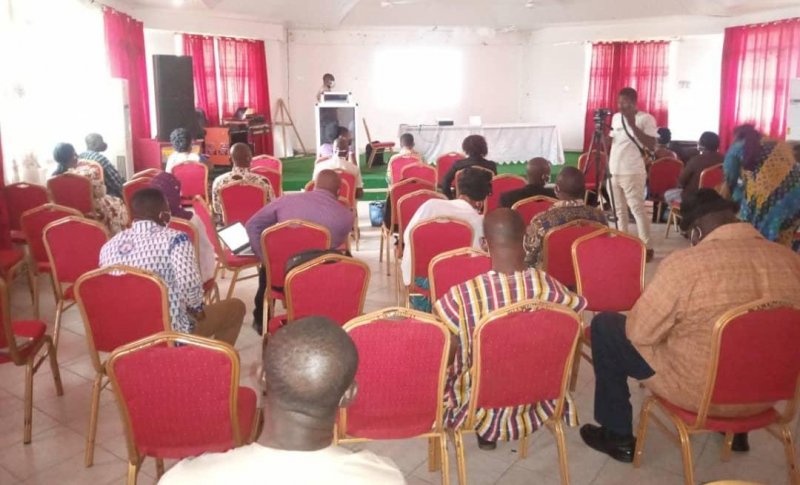A total of 58 students from 17 schools have so far been infected with COVID-19 in the Upper West Region since the outbreak of the virus in Ghana on March 12, 2020, according to the Ghana Health Service (GHS).
Dr Richard Wodah-Seme, the Acting Upper West Regional Director of Public Health who disclosed this during a stakeholder engagement on school aged nutrition in Wa lauded the massive collaboration from the Ghana Education Service (GES), which enabled them to control the outbreak of the disease in all the 17 schools.
The GHS and GES initiated the Nutrition Friendly School Initiative (NFSI) and the SMART School Initiative in seeking to improve the school nutrition environment and provide nutrition education for the overall health and wellbeing of students.
This intervention preceded the Girls Iron and Folate Tablets Supplementation (GIFTS) programme in the region introduced in November 2019 by the GHS, GES and UNICEF in response to the high anaemia prevalence (48%) in Ghana among adolescent girls.
Dr Wodah-Seme expressed the hope that NFSI and the SMART School Initiative would receive the same collaboration they enjoyed from the GES in the past, adding that, it was essential for stakeholders to come together to highlight the importance of nutrition among children in their formative stages.
He noted that the Service would soon establish the prevalence of obesity among school children in the region.
“This is a study that will soon be commissioned by the GHS so that they will be able to establish the true extent of the problem and to come up with innovative ways of killing it before it goes out of control”, he said.
Mr Razak Abdul-Koray, the Upper West Regional Director of Education, noted that GES was hosting about 90 per cent of the target population and that they had been battling with attendance and performances, some of which they traced to poor nutrition.
“A healthy child certainly will be in school, but if they continue to fall sick they will not come to school and that has a likelihood effect on the child’s performance”, the GES Regional Director said.
Mr Abdul-Koray noted that this was the more reason why they needed to collaborate to get the children fit to ensure regular school attendance.
Mr Anthony Kullah, the Regional Nutrition Officer, in a presentation on the rationale for investing in school-age child and adolescent nutrition, noted that evidence suggested that investment in the nutrition of school age and adolescent could have a positive impact on current and future nutrition status.
“Additionally, it would improve learning outcomes and help establish positive dietary and healthy practices that extended into adulthood and help break the intergenerational cycle of malnutrition”, he added.
He further noted that health and nutrition interventions ensured that children were ready to be enrolled on time and stayed in school by enhancing attendance and reducing dropout rates, which would improve learning in school by cognition and educational achievement.
Source: GNA
Source: GNA


